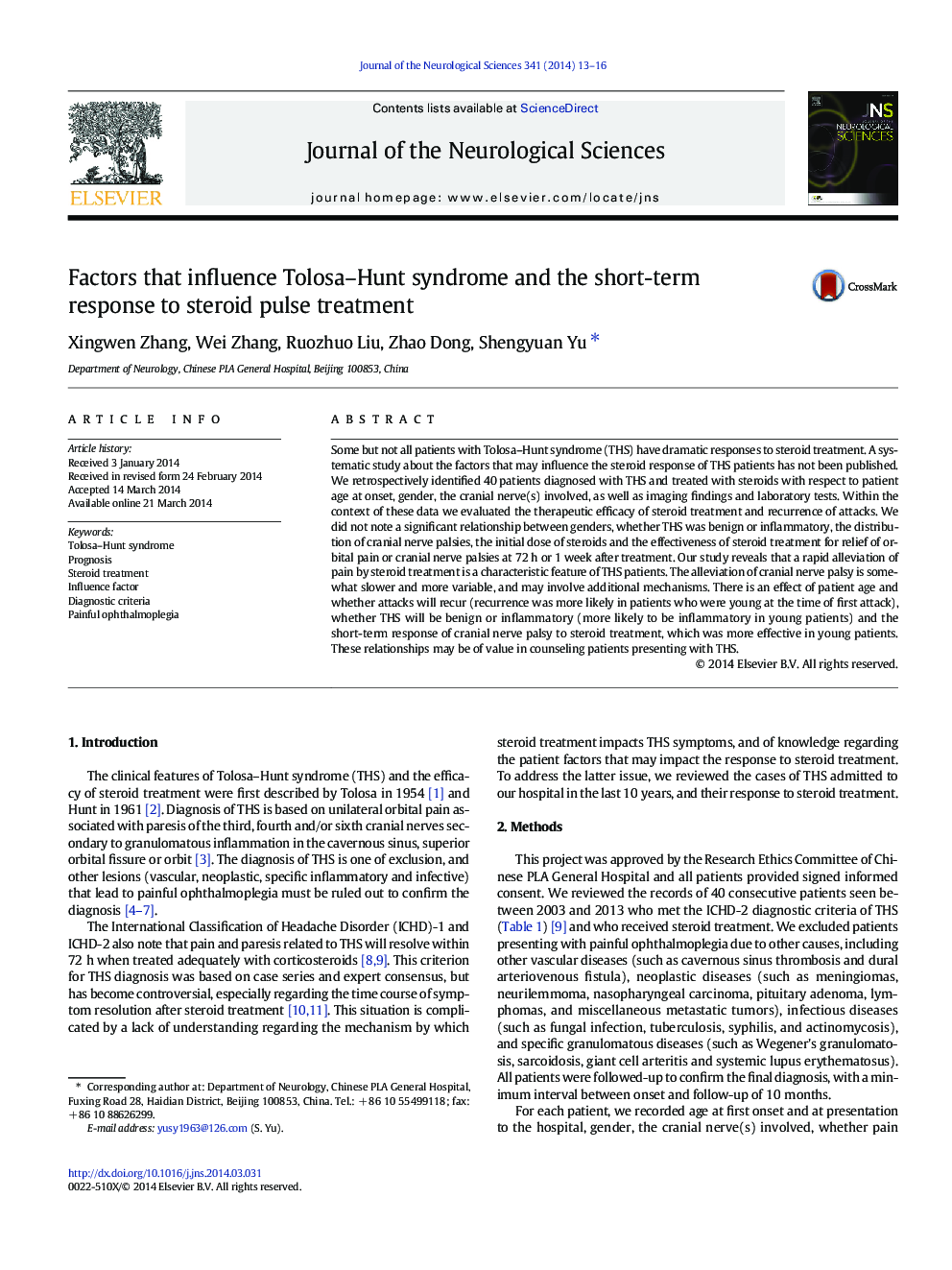| Article ID | Journal | Published Year | Pages | File Type |
|---|---|---|---|---|
| 8277112 | Journal of the Neurological Sciences | 2014 | 4 Pages |
Abstract
Some but not all patients with Tolosa-Hunt syndrome (THS) have dramatic responses to steroid treatment. A systematic study about the factors that may influence the steroid response of THS patients has not been published. We retrospectively identified 40 patients diagnosed with THS and treated with steroids with respect to patient age at onset, gender, the cranial nerve(s) involved, as well as imaging findings and laboratory tests. Within the context of these data we evaluated the therapeutic efficacy of steroid treatment and recurrence of attacks. We did not note a significant relationship between genders, whether THS was benign or inflammatory, the distribution of cranial nerve palsies, the initial dose of steroids and the effectiveness of steroid treatment for relief of orbital pain or cranial nerve palsies at 72Â h or 1Â week after treatment. Our study reveals that a rapid alleviation of pain by steroid treatment is a characteristic feature of THS patients. The alleviation of cranial nerve palsy is somewhat slower and more variable, and may involve additional mechanisms. There is an effect of patient age and whether attacks will recur (recurrence was more likely in patients who were young at the time of first attack), whether THS will be benign or inflammatory (more likely to be inflammatory in young patients) and the short-term response of cranial nerve palsy to steroid treatment, which was more effective in young patients. These relationships may be of value in counseling patients presenting with THS.
Keywords
Related Topics
Life Sciences
Biochemistry, Genetics and Molecular Biology
Ageing
Authors
Xingwen Zhang, Wei Zhang, Ruozhuo Liu, Zhao Dong, Shengyuan Yu,
